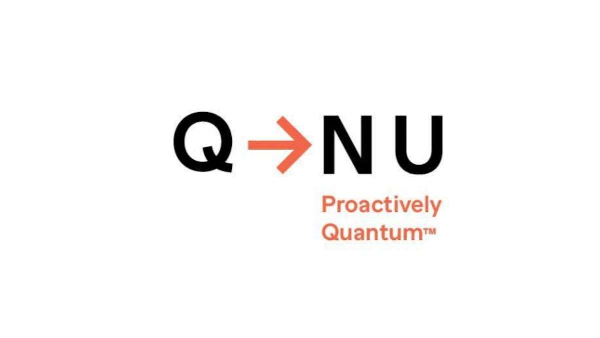An Indian company called QNu Labs aims to be a global player in the futuristic field of quantum computing, after becoming the world’s fourth company to build a deployable “Quantum-Safe Security” product.
Only three companies worldwide can boast of such an achievement. Quantum-Safe Security is regarded as a relatively small, billion-dollar niche in the overall field of quantum computing, which could soon be a trillion-dollar industry.
The Bengaluru-based QNu Labs has matched global firms QuintessenceLabs, ID Quantique, and Toshiba in developing Quantum-Safe Security solutions. These safeguard sensitive data by upgrading conventional network encryption to foil “hacking” attempts from hostile quantum computers. In the emerging era of “quantum supremacy”, hackers using quantum computing can quickly crack contemporary encryption algorithms.
Quantum computing relies on vastly enhanced computing capacity to quickly crack problems that would take conventional computers years to solve.
The benefits of supercomputing were highlighted last fortnight in the context of the COVID-19 pandemic, when IBM’s Summit supercomputer quickly identified 77 chemical compounds that might form the basis of an eventual drug against the virus.
A quantum computer could do the job far faster. Last October, Google’s Sycamore processor — a quantum computer — performed a calculation in 200 seconds that would have taken the world’s most powerful supercomputer 10,000 years to solve.
India’s government has announced its intention of becoming a global leader in quantum computing. The 2020-21 Union Budget allocates Rs 8,000 crore towards this end.
But quantum computing also has a dark side. Its computing power can quickly overwhelm (“hack”) the encryption that protects data and communications in critical systems such as military and nuclear command networks, government agencies, banks, financial institutions and power grids.
“We at QNu anticipated that the power of quantum computing, in the wrong hands, has immense destructive capability. So there is a need for Quantum-Safe Encryption (or Quantum-Safe Security) to safeguard networks against malevolent quantum computing,” says Sunil Gupta, one of the four co-founders of QNu Labs.
The Bangalore-based QNu Labs, which describes itself as a “true research & development-led, intellectual property-focused quantum player”, believes that the current public-key encryption method is highly vulnerable and is a huge Indian security weakness.
“Hackers carry out ‘harvest now, decrypt later’ attacks, where they can copy and store encrypted data and decrypt it at a later stage with quantum computers… QNu Labs intention is to protect data at a national level,” says the company.
With critical networks now looking at Quantum-Safe Security solutions to ward off break-in attacks from quantum computers, this niche will become a $25 billion industry within three years, say industry experts.
Eyeing that market segment, QNu Labs has recently launched a “Quantum Random Number Generator” called Tropos and “Quantum Key Distribution System” called Armos, which it says is fully resistant to hacking attacks from adversarial quantum computers.
The national security establishment is clearly interested in QNu Labs’ expertise. Potential adversaries like China’s People’s Liberation Army are developing sophisticated capabilities to hack into, and paralyse, Indian command and infrastructure networks.
QNu Labs has given technical briefings to the National Security Agency and the Defence R&D Organisation (DRDO). The company has signed a memorandum with Bharat Electronics (BEL), in case quantum-safe security systems are required to be built in the future through a public sector entity.
“We have about 14-15 critical trade secrets, which we will safeguard as our own intellectual property. We have filed four patents already and will be filing nine more for our technologies,” says Gupta.
QNu Labs was incorporated in 2016, after being incubated in Indian Institute of Technology, Madras. Gupta says the Coronavirus pandemic will restrict the current year’s turnover to $250,000 (Rs 2 crore) but, with his products ready to hit the market, the target for 2020-21 is $5 million, $15 million for 2021-22 and $30 million for 2022-23.
The four co-founders own the company, along with some angel investors who are high-net worth-individuals (HNIs) interested in deep technology. Funds are also being raised from venture capitalists. nalling its global ambitions, QNu Labs has incorporated a subsidiary in the US in October 2019, called QNu Inc.
Source: BS
Image Courtesy: IndiaTV
You may also like
-
Trade Connect E-platform For Exports Is Single Window, Fast, Accessible And Transformational: Shri Piyush Goyal
-
Dot Simplifies Approval Processes For Telecom Licenses And Wireless Equipment
-
Coal Production and Supply Trends on Positive Trajectory
-
Union Minister To Release Booklets On Promotion Of Indigenous Species & Conservation Of States Fishes
-
2nd India-Japan Finance Dialogue held in Tokyo on 6th September, 2024
